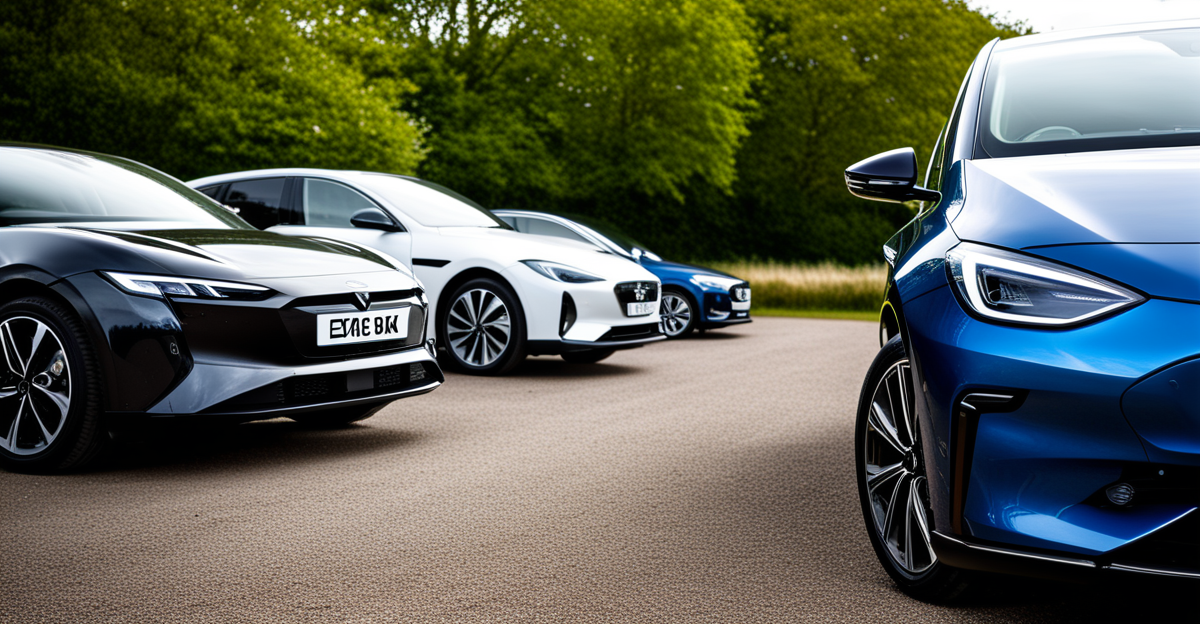Overview of the UK’s Electric Vehicle (EV) Market Growth
The UK EV market growth has accelerated significantly in recent years, marked by a sharp increase in electric vehicle sales and registrations. As consumers become increasingly environmentally conscious and technologies improve, UK electric vehicle adoption rates reflect this upward trend, with electric cars accounting for a growing share of total vehicle sales every quarter. This growth is further demonstrated by the expansion of electric models available to UK consumers, ranging from affordable compact vehicles to luxury offerings.
Several factors drive this expansion. Foremost among these is strong government support, comprising incentives such as purchase grants, tax benefits, and exemptions from congestion charges. These key UK government incentives and policy initiatives reduce the upfront and ongoing costs associated with owning an electric vehicle, making EVs more attractive choices compared to traditional combustion engine vehicles. Additionally, increased fuel prices and growing concerns over air quality contribute to the rising preference for zero-emission transport options.
Topic to read : How Will Electric Vehicles Revolutionize the Future of UK Automotive Industry?
Another important driver is the evolving UK automotive trends that show a systemic shift toward sustainability within both consumers and manufacturers. Car makers are ramping up EV production, aligning with the UK’s target to phase out new petrol and diesel car sales by 2030. This policy framework boosts confidence among buyers and manufacturers alike, rooting the UK’s market as one of the most dynamic in Europe for electric vehicles. The integration of these factors forms a robust foundation for sustained UK EV market growth moving forward.
Infrastructure Development Supporting EV Adoption
The acceleration of UK EV market growth depends heavily on the development of a robust EV charging infrastructure UK. Expanding accessible and reliable charging points across urban and rural areas directly supports the rising UK electric vehicle adoption by alleviating range anxiety, a significant barrier for potential EV buyers. Recent investments have focused on public fast-charging hubs along major motorways and in city centres, enabling longer trips and daily commuting with greater convenience.
Also to discover : What innovations are UK automotive startups bringing to the market?
A key characteristic of UK infrastructure development is the strong collaboration between government bodies and private companies. This public-private partnership model promotes efficient deployment and innovation within EV support systems, ensuring compatibility standards and expanding network coverage. The UK government’s role through targeted UK electric vehicle policies provides funding and regulatory frameworks that encourage infrastructure companies to scale up operations quickly while maintaining accessibility.
Regional disparities still exist in the rollout of EV infrastructure in the UK. While metropolitan areas like London and the Midlands benefit from dense charging networks, more remote areas face slower expansion, which can impede UK EV market growth evenly nationwide. Addressing this imbalance requires coordinated efforts at local and national levels to integrate charging infrastructure with broader transport and energy strategies—fortifying the overall ecosystem that supports widespread UK electric vehicle adoption.
Technological Advancements and Manufacturing Shifts
The UK automotive manufacturing sector is undergoing a transformative phase, heavily influenced by rapid EV technology innovation. The UK’s commitment to sustainability and electric mobility has propelled advancements such as improved battery efficiency, enhanced range capabilities, and integration of intelligent energy management systems. These innovations solidify the UK’s position as a key player in setting global EV technology standards, fostering more efficient, reliable, and user-friendly vehicles.
A notable shift in UK automotive manufacturing lies in the reconfiguration of traditional supply chains to support electric vehicle production. This includes sourcing critical raw materials for batteries closer to home and establishing partnerships for key components, which enhances supply chain resilience and reduces dependencies on distant suppliers. Moreover, the rise of UK-based EV startups is injecting fresh dynamism into the industry. These new ventures often focus on cutting-edge technologies such as solid-state batteries and advanced electric drivetrains, driving both competition and collaboration within the ecosystem.
The evolution of EV support systems extends beyond manufacturing to include software integration and vehicle-to-grid technologies, enabling smarter energy use and contributing to grid stability. The interplay between these manufacturing shifts and technological developments strengthens the overall UK electric vehicle market, supporting sustainable growth and innovation leadership.
Global Impacts of the UK’s EV Market Expansion
The UK EV market growth has significantly influenced global automotive trends, positioning the UK as a prominent player in shaping the future of electric mobility. UK-developed EV technology innovation increasingly sets benchmarks adopted worldwide, especially in battery efficiency, intelligent energy management, and vehicle-to-grid integration. This global permeation results from the UK’s focus on sustainable, cutting-edge solutions that appeal to international markets striving for cleaner transportation options.
How does the UK EV market influence international EV adoption? The answer lies in the transfer of advanced technologies and policy frameworks that originated from the UK’s regulatory environment and industry best practices. Countries observing UK successes adapt these strategies, including incentives for consumers and manufacturers, to accelerate their international EV adoption rates. This kind of knowledge sharing emphasizes interoperability and standardization, crucial for cross-border EV infrastructure and vehicle compatibility.
The UK’s influence extends to international regulations and UK electric vehicle policies, which inform global efforts to harmonize standards for safety, emissions, and charging infrastructure. By cooperating in multinational forums and alliances, the UK leverages its domestic achievements to help shape global EV frameworks, fostering smoother trade and innovation exchanges. This cooperation enhances the UK’s competitive position alongside other leading EV markets, encouraging collaboration rather than isolation.
In summary, the UK’s expanding electric vehicle ecosystem not only propels national growth but also acts as a catalyst for wider international change. The authentic blend of innovation, policy leadership, and market dynamism ensures the UK remains influential within the global transition to sustainable automotive technologies.
Comparative Analysis with Other Leading EV Markets
Comparing the UK EV market growth with other major regions reveals important distinctions and similarities that highlight the UK’s unique position in the global landscape. While the UK demonstrates robust expansion, particularly through government incentives and targeted UK electric vehicle policies, the pace and scale of adoption vary when contrasted with the EU, US, and Asian EV markets.
In the EU, several countries lead in electric vehicle penetration, driven by aggressive policy targets and extensive EV charging infrastructure UK equivalents. Nations like Norway and Germany have achieved higher EV adoption percentages due to longstanding incentives and infrastructure investments. However, the UK’s strategic focus on integrating EV support systems within public-private partnerships enables agile scaling of technology and infrastructure, setting it apart from some continental peers.
The US EV market comparison shows a more fragmented pattern, with California spearheading growth through state-level incentives but other areas adopting more gradually. The UK benefits from a unified national policy framework, which streamlines implementation and promotes nationwide UK electric vehicle adoption. This cohesive approach contrasts with the US’s decentralized system, offering better market predictability for manufacturers and consumers.
Asian markets, particularly China, excel in scale and production capacity, influencing global supply chains and UK automotive trends indirectly through competitive pressures and technology sharing. The UK’s emphasis on innovation, including support for startups and cutting-edge battery tech, complements these global shifts. Consequently, the UK’s growth reflects a balanced model combining policy-driven adoption with advanced manufacturing and technology development.
Insights from industry analysts suggest that while the UK may not yet match the sheer volume of EV sales seen in some Asian or European countries, its tailored policies and collaborative infrastructure development foster sustainable, long-term growth. This makes the UK a valuable case study in effective EV market strategy—one that balances government vision, industrial transformation, and evolving consumer demand across diverse regions.








